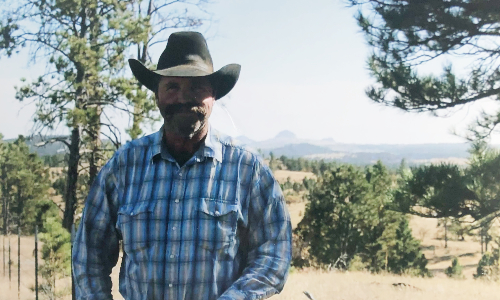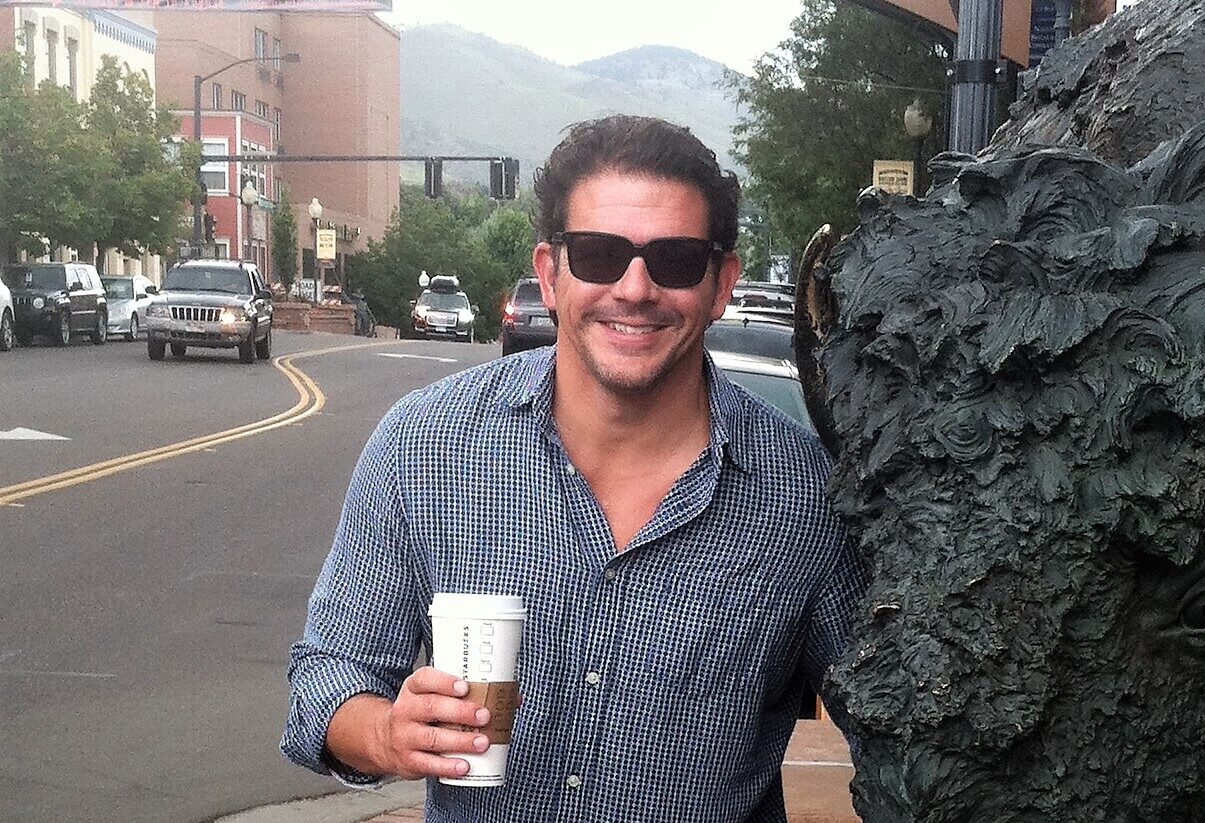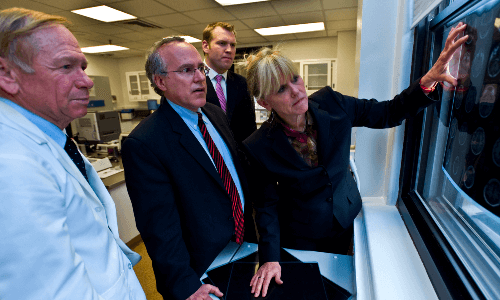Melvin Snook was in multiple car crashes and rode bareback horses at rodeos for many years, leading to several brain injuries over the course of his life. He ranched in Wyoming with his wife where they raised four kids together. Despite his challenges, he pushed through everything – putting a smile on his face and going for a daily walk. Later in life, he experienced migraine headaches, short-term memory loss that progressed into long-term, unexplained experiences in his brain, personality and mood changes, mini strokes in the brain, and depression. Melvin passed away in November 2019. After Melvin’s death, his family donated his brain to the UNITE Brain Bank for research.

Melvin Snook was in multiple car crashes and rode bareback horses at rodeos for several years. These crashes and rides are thought to be the cause of several brain injuries over the course of his life. He ranched in Wyoming with his wife where they raised four kids together. Despite his challenges, he pushed through everything – putting a smile on his face and going for a daily walk.
Melvin Snook lived 63 years, most of which he suffered from many unknown complications of the brain. These complications were not discussed or thought of about until 1988 when he suddenly collapsed and had a subdural hemorrhage. He was taken to the Mayo clinic and went there on several occasions from 1988-1990. The doctors diagnosed him with migraine headaches, short-term memory loss that progressed into long-term, unexplained experiences in his brain, personality and mood changes, mini strokes in the brain, and depression.
Some doctors even misdiagnosed him with Alzheimer’s disease. Migraines decreased while other brain complications worsened. Melvin was losing the ability to find words to speak, leaving him unable to explain what he was experiencing. MRIs showed parts of the brain atrophying. In 2016, he wasn’t feeling right and was taken to the hospital after loss of balance and continued vomiting. He had hydrocephalus and pneumoencephalitis. This led to a two-month stay in ICU at Anschutz Hospital in Denver, Colorado, where he had five brain surgeries and no real answers. He went home with a shunt and recovered at home until he later took his life in November 2019.
Suicide is preventable and help is available. If you are concerned that someone in your life may be suicidal, the five #BeThe1To steps are simple actions anyone can take to help someone in crisis. If you are struggling to cope and would like emotional support, call the Suicide & Crisis Lifeline at 988 to connect with a trained counselor. It’s free, confidential, and available to everyone in the United States. You do not have to be suicidal to call.
If you or someone you know is struggling with concussion or suspected CTE symptoms, reach out to us through the CLF HelpLine. We support patients and families by providing personalized help to those struggling with the outcomes of brain injury. Submit your request today and a dedicated member of the Concussion Legacy Foundation team will be happy to assist you.

